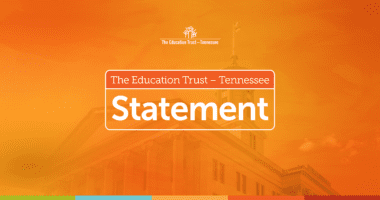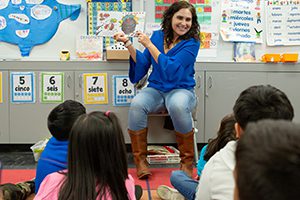Social Mobility, Race, and Higher Education
The TIAA Institute and The Education Trust hosted a fast-paced, interactive event in Washington, D.C., focused on social mobility, race, and higher education. Check out the hashtag #SocialMobility on your favorite social media channel to read the live commentary.
The event combined short talks, big ideas, and breakout discussions, with a keynote featuring John B. King Jr., president and CEO of The Education Trust, in conversation with Anthony Jack, author of The Privileged Poor: How Elite Colleges Are Failing Disadvantaged Students. Download the agenda for a complete list of speakers, and find related resources below.
Presenters' Slides
Participant Perspectives
Speaker Biographies
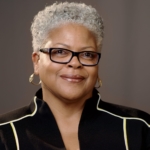 Brenda A. Allen became the 14th president of Lincoln University, in Pennsylvania, on July 1, 2017. Prior to taking the helm at Lincoln, her alma mater, she served as provost and vice chancellor for academic affairs at Winston Salem State University (WSSU) and associate provost and director of institutional diversity at Brown University, in Providence, Rhode Island. Prior to Brown, Allen held a number of academic and administrative positions at Smith College, in Northampton, Massachusetts, including professor and chair of the African American Studies Department, assistant to the president, director of institutional diversity, and special assistant to the provost. Allen also spent three years at Yale University, in New Haven, Connecticut, where she was a postdoctoral associate in the Department of Psychology and a lecturer in the Departments of Psychology and African American Studies.
Brenda A. Allen became the 14th president of Lincoln University, in Pennsylvania, on July 1, 2017. Prior to taking the helm at Lincoln, her alma mater, she served as provost and vice chancellor for academic affairs at Winston Salem State University (WSSU) and associate provost and director of institutional diversity at Brown University, in Providence, Rhode Island. Prior to Brown, Allen held a number of academic and administrative positions at Smith College, in Northampton, Massachusetts, including professor and chair of the African American Studies Department, assistant to the president, director of institutional diversity, and special assistant to the provost. Allen also spent three years at Yale University, in New Haven, Connecticut, where she was a postdoctoral associate in the Department of Psychology and a lecturer in the Departments of Psychology and African American Studies.
Allen holds a bachelor’s degree in psychology from Lincoln University, a master’s degree in experimental psychology and a doctorate in developmental psychology, both from Howard University, in Washington, D.C.
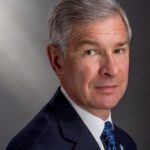 Since beginning his tenure as Georgia State University’s seventh president in January 2009, President Mark P. Becker has pursued an ambitious vision for the future of the institution and has led it into an unparalleled period of growth and advancement.
Since beginning his tenure as Georgia State University’s seventh president in January 2009, President Mark P. Becker has pursued an ambitious vision for the future of the institution and has led it into an unparalleled period of growth and advancement.
Reflecting his vision of the modern public research university, Georgia State adopted a dynamic 10-year strategic plan that has fueled its emergence as one of the nation’s premier urban research universities. Becker was named one of America’s 10 most innovative university presidents by Washington Monthly in 2015, and the university was ranked the number two most innovative university in the country by U.S. News & World Report in 2018.
As a first-generation college student who began his educational career at a community college, Becker is personally and professionally committed to ensuring that students of all economic backgrounds succeed. In a 10-year period, the university’s graduation rates have increased by 22 percentage points. The university has become a widely recognized national leader in the introduction of innovative programs and initiatives to foster student success. It leads the nation in eliminating disparities in graduation rates based on race, ethnicity or income, and as one of the most diverse universities in America, is first in the nation among nonprofit institutions in graduating African-American students.
 Camille Busette is director of the Brookings Institution Race, Prosperity, and Inclusion Initiative. Prior to Brookings, Camille held executive positions at the Consultative Group to Assist the Poor, the Consumer Financial Protection Bureau, EARN, PayPal, and Intuit. Camille holds a bachelor’s in political science from the University of California, Berkeley, as well as a master’s and a doctorate in political science from the University of Chicago.
Camille Busette is director of the Brookings Institution Race, Prosperity, and Inclusion Initiative. Prior to Brookings, Camille held executive positions at the Consultative Group to Assist the Poor, the Consumer Financial Protection Bureau, EARN, PayPal, and Intuit. Camille holds a bachelor’s in political science from the University of California, Berkeley, as well as a master’s and a doctorate in political science from the University of Chicago.
 Sancia Celestin is a fourth-year student studying psychology and public policy at George Mason University. Driven by her experience as a Haitian-American and a first-generation college student from a low-income background, she serves as president of F1rst Gen Mason, a student organization dedicated to the success of first-generation college students. Sancia is also a policy and advocacy intern at the National College Access Network.
Sancia Celestin is a fourth-year student studying psychology and public policy at George Mason University. Driven by her experience as a Haitian-American and a first-generation college student from a low-income background, she serves as president of F1rst Gen Mason, a student organization dedicated to the success of first-generation college students. Sancia is also a policy and advocacy intern at the National College Access Network.
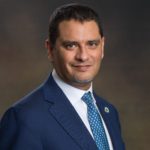 José Luis Cruz is president of the Herbert H. Lehman College of The City University of New York and is widely regarded as a leading advocate for policies to expand opportunities and improve educational outcomes for all students – especially those who have historically been underserved.
José Luis Cruz is president of the Herbert H. Lehman College of The City University of New York and is widely regarded as a leading advocate for policies to expand opportunities and improve educational outcomes for all students – especially those who have historically been underserved.
Previously, President Cruz served as provost of California State University, Fullerton. He is a former vice president of higher education policy and practice at The Education Trust, in Washington, D.C. and a former vice president of student affairs for the University of Puerto Rico system. He began his career as at the University of Puerto Rico, Mayagüez, where he became chair of the Electrical and Computer Engineering Department and dean of academic affairs.
President Cruz is a professor of physics in Lehman’s School of Natural and Social Sciences and serves on the boards of directors of The Education Trust, the Institute for Higher Education Policy, the Data Quality Campaign, Regional Plan Association and the New York Botanical Garden. He is a senior member of the Institute of Electrical and Electronics Engineers, as well as a National Science Foundation Career Award recipient. He earned his bachelor’s degree in electrical engineering from the University of Puerto Rico, Mayagüez and his doctorate from the Georgia Institute of Technology.
 Lorelle L. Espinosa is the vice president for research at the American Council on Education (ACE). She is responsible for developing the organization’s thought leadership and research agenda and for ensuring a consistent evidence base across ACE’s array of programs and services. With more than 20 years of experience in higher education practice, policy, and research, Espinosa is a national voice on issues pertaining to college access and success for diverse populations and on the role of equity-minded leadership in postsecondary settings. Her current research includes a three-year grant from The Andrew W. Mellon Foundation to examine race and ethnicity in higher education, and multiple collaborations with scholars from around the country to translate important academic research for policy and practitioner audiences.
Lorelle L. Espinosa is the vice president for research at the American Council on Education (ACE). She is responsible for developing the organization’s thought leadership and research agenda and for ensuring a consistent evidence base across ACE’s array of programs and services. With more than 20 years of experience in higher education practice, policy, and research, Espinosa is a national voice on issues pertaining to college access and success for diverse populations and on the role of equity-minded leadership in postsecondary settings. Her current research includes a three-year grant from The Andrew W. Mellon Foundation to examine race and ethnicity in higher education, and multiple collaborations with scholars from around the country to translate important academic research for policy and practitioner audiences.
![]() Joseline Garcia serves as the President of the United States Student Association (USSA), the nation’s oldest and largest student organization. She is the daughter of Mexican and Guatemalan immigrants, a sister of two younger brothers, and a first-generation alumna of the University of California, Santa Barbara (UCSB). Her organizing career began at UCSB when she attended a Student of Color Conference hosted by her Statewide Student Association. As a student, she served as a USSA board member where she led multiple campaigns including the State of Emergency and Free Higher Ed. She also organized the largest Million Student March in the country where over 1,500 students participated. As Student Advocate General, she lead a successful and historic campaign for the Latino student community to demand increases and retention of their community on campus. That effort led to the establishment of a Central American Department and major on campus, Latinx Parent Weekend, and a Campus Mural that celebrates the Latinx community. In her role as USSA President, she continues to fight for students on a national and federal level by uplifting local community efforts onto a national platform. She also serves as a member of the College Promise Campaign’s National Advisory Board.
Joseline Garcia serves as the President of the United States Student Association (USSA), the nation’s oldest and largest student organization. She is the daughter of Mexican and Guatemalan immigrants, a sister of two younger brothers, and a first-generation alumna of the University of California, Santa Barbara (UCSB). Her organizing career began at UCSB when she attended a Student of Color Conference hosted by her Statewide Student Association. As a student, she served as a USSA board member where she led multiple campaigns including the State of Emergency and Free Higher Ed. She also organized the largest Million Student March in the country where over 1,500 students participated. As Student Advocate General, she lead a successful and historic campaign for the Latino student community to demand increases and retention of their community on campus. That effort led to the establishment of a Central American Department and major on campus, Latinx Parent Weekend, and a Campus Mural that celebrates the Latinx community. In her role as USSA President, she continues to fight for students on a national and federal level by uplifting local community efforts onto a national platform. She also serves as a member of the College Promise Campaign’s National Advisory Board.
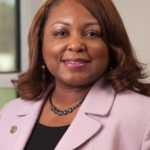 Tracy D. Hall became president of Southwest Tennessee Community College on July 13, 2015. Prior to that appointment, Hall was vice president of academic affairs at St. Louis Community College-Forest Park, where she oversaw the planning, development, implementation and assessment of general transfer studies and more than 30 career and technical programs. Prior to that, she was an associate dean of instruction and a full-time faculty member of speech mass communication, and intercultural communication at Metropolitan Community College-Penn Valley, in Kansas City, Missouri; coordinator of minority student retention services at Kennesaw State University, in Georgia; and a full-time Communications instructor at St. Louis Community College-Meramec, where she first began her academic career.
Tracy D. Hall became president of Southwest Tennessee Community College on July 13, 2015. Prior to that appointment, Hall was vice president of academic affairs at St. Louis Community College-Forest Park, where she oversaw the planning, development, implementation and assessment of general transfer studies and more than 30 career and technical programs. Prior to that, she was an associate dean of instruction and a full-time faculty member of speech mass communication, and intercultural communication at Metropolitan Community College-Penn Valley, in Kansas City, Missouri; coordinator of minority student retention services at Kennesaw State University, in Georgia; and a full-time Communications instructor at St. Louis Community College-Meramec, where she first began her academic career.
Hall has a doctoral degree in educational leadership and policy analysis from the University of Missouri-Columbia, a master’s degree in communications from Wichita State University, and a bachelor’s degree in speech and mass communications from the University of Missouri-St. Louis.
 Sufyan Hameed (Sufy) is a full-time student at Kingsborough Community College, where he’s pursuing an associate degree before transferring to a baccalaureate institution. In his spare time, he is also an activist, CEO of K4RMA Clothing Co. (k4rmanyc.com), and director of expansion at IntegrateNYC, a nonprofit organization that focuses on reforming social injustices and fighting racial inequity. Hameed longs for the day when future generations will be able to grow and prosper within an education system that allots equitable funding and opportunities to all students.
Sufyan Hameed (Sufy) is a full-time student at Kingsborough Community College, where he’s pursuing an associate degree before transferring to a baccalaureate institution. In his spare time, he is also an activist, CEO of K4RMA Clothing Co. (k4rmanyc.com), and director of expansion at IntegrateNYC, a nonprofit organization that focuses on reforming social injustices and fighting racial inequity. Hameed longs for the day when future generations will be able to grow and prosper within an education system that allots equitable funding and opportunities to all students.
 Marvin Krislov became the eighth president of Pace University on August 1, 2017. He is deeply committed to Pace’s mission of Opportunitas — providing all students, regardless of economic background, access to the transformative power of education. He is guiding Pace through its New York City Master Plan to overhaul our downtown campus, and he’s working to bolster Pace’s status as the nation’s leading four-year private college for driving economic mobility. Prior to Krislov’s appointment at Pace, he served for 10 years as the president of Oberlin College, where he led collaborative, consensus-driven efforts to make the college more rigorous, diverse, inclusive, and accessible to students from every socioeconomic background. Prior to Oberlin, he was vice president and general counsel at the University of Michigan, where he led the legal defense of the university’s admission policies that resulted in the 2003 Supreme Court decision recognizing the importance of student body diversity. Krislov earned a bachelor’s degree, summa cum laude, at Yale University, and was a Rhodes Scholar. He has master’s degrees from Oxford University and Yale, as well as a juris doctor degree from Yale Law School. Prior to entering academic life, Krislov served as acting solicitor and then deputy solicitor of national operations in the U.S. Department of Labor. He previously served as associate counsel in the Office of Counsel to the President under President Bill Clinton.
Marvin Krislov became the eighth president of Pace University on August 1, 2017. He is deeply committed to Pace’s mission of Opportunitas — providing all students, regardless of economic background, access to the transformative power of education. He is guiding Pace through its New York City Master Plan to overhaul our downtown campus, and he’s working to bolster Pace’s status as the nation’s leading four-year private college for driving economic mobility. Prior to Krislov’s appointment at Pace, he served for 10 years as the president of Oberlin College, where he led collaborative, consensus-driven efforts to make the college more rigorous, diverse, inclusive, and accessible to students from every socioeconomic background. Prior to Oberlin, he was vice president and general counsel at the University of Michigan, where he led the legal defense of the university’s admission policies that resulted in the 2003 Supreme Court decision recognizing the importance of student body diversity. Krislov earned a bachelor’s degree, summa cum laude, at Yale University, and was a Rhodes Scholar. He has master’s degrees from Oxford University and Yale, as well as a juris doctor degree from Yale Law School. Prior to entering academic life, Krislov served as acting solicitor and then deputy solicitor of national operations in the U.S. Department of Labor. He previously served as associate counsel in the Office of Counsel to the President under President Bill Clinton.
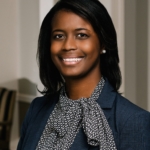 Laura Moore is deputy policy director at Opportunity Insights, where she works with stakeholders across the country to develop scalable policies that empower families to rise out of poverty and achieve better life outcomes. Over the last decade, she has worked in policy at the national, state, and local levels. Most recently, she served as the senior advisor on education under Nashville’s last two mayors. In that role, she worked with the city’s nonprofit and educational institutions to promote policies that spur innovation and support parents and teachers. She also worked closely with post-secondary institutions in Nashville and Middle Tennessee. Prior to joining the mayor’s office, Moore was vice president of policy for the Nashville Area Chamber of Commerce. She has also served as director of innovation at the Tennessee State Collaborative on Reforming Education (SCORE). Moore began her career as the project and policy manager at Civic Enterprises, a public policy firm based in Washington, D.C. A Memphis native, Moore holds a Master of Public Policy from the Peabody College of Education and Human Development at Vanderbilt University, as well as a bachelor’s degree from Harvard University.
Laura Moore is deputy policy director at Opportunity Insights, where she works with stakeholders across the country to develop scalable policies that empower families to rise out of poverty and achieve better life outcomes. Over the last decade, she has worked in policy at the national, state, and local levels. Most recently, she served as the senior advisor on education under Nashville’s last two mayors. In that role, she worked with the city’s nonprofit and educational institutions to promote policies that spur innovation and support parents and teachers. She also worked closely with post-secondary institutions in Nashville and Middle Tennessee. Prior to joining the mayor’s office, Moore was vice president of policy for the Nashville Area Chamber of Commerce. She has also served as director of innovation at the Tennessee State Collaborative on Reforming Education (SCORE). Moore began her career as the project and policy manager at Civic Enterprises, a public policy firm based in Washington, D.C. A Memphis native, Moore holds a Master of Public Policy from the Peabody College of Education and Human Development at Vanderbilt University, as well as a bachelor’s degree from Harvard University.
 Brandon Nivens is veteran of the U.S. Navy, where he served as a personnel specialist for four years. Currently, he is a customer success manager for Zoom Video Communications, in Atlanta. Prior to that, he held positions at Workday, Inc., a financial management and human resources software company, and TD Bank. Nivens’ true passion, however, is helping veterans. He is an active citizen advocate for Concerned Veterans for America (CVA) and Veteran Education Success (VES). He participated in a congressional panel on the problem of predatory for-profit colleges targeting veterans and has participated in various campaigns for veterans causes on the Hill. Nivens believes veterans are this country’s last untapped resource. Nivens studied finance at the University of South Carolina.
Brandon Nivens is veteran of the U.S. Navy, where he served as a personnel specialist for four years. Currently, he is a customer success manager for Zoom Video Communications, in Atlanta. Prior to that, he held positions at Workday, Inc., a financial management and human resources software company, and TD Bank. Nivens’ true passion, however, is helping veterans. He is an active citizen advocate for Concerned Veterans for America (CVA) and Veteran Education Success (VES). He participated in a congressional panel on the problem of predatory for-profit colleges targeting veterans and has participated in various campaigns for veterans causes on the Hill. Nivens believes veterans are this country’s last untapped resource. Nivens studied finance at the University of South Carolina.
 Grace Pang is a sophomore at San Jose State University. Originally from Oakland, California, she is a board member of the Cal State Student Association — a student-led organization that represents a half-million California students — as well as the association’s vice president-elect of legislative affairs. Her involvement in student leadership has helped her take ownership of her higher education experience, and she continues to advocate for students to be stakeholders in university governance. She is most passionate about the issues that lie at the intersection between student reproductive justice, support for undocumented students, and college affordability.
Grace Pang is a sophomore at San Jose State University. Originally from Oakland, California, she is a board member of the Cal State Student Association — a student-led organization that represents a half-million California students — as well as the association’s vice president-elect of legislative affairs. Her involvement in student leadership has helped her take ownership of her higher education experience, and she continues to advocate for students to be stakeholders in university governance. She is most passionate about the issues that lie at the intersection between student reproductive justice, support for undocumented students, and college affordability.




